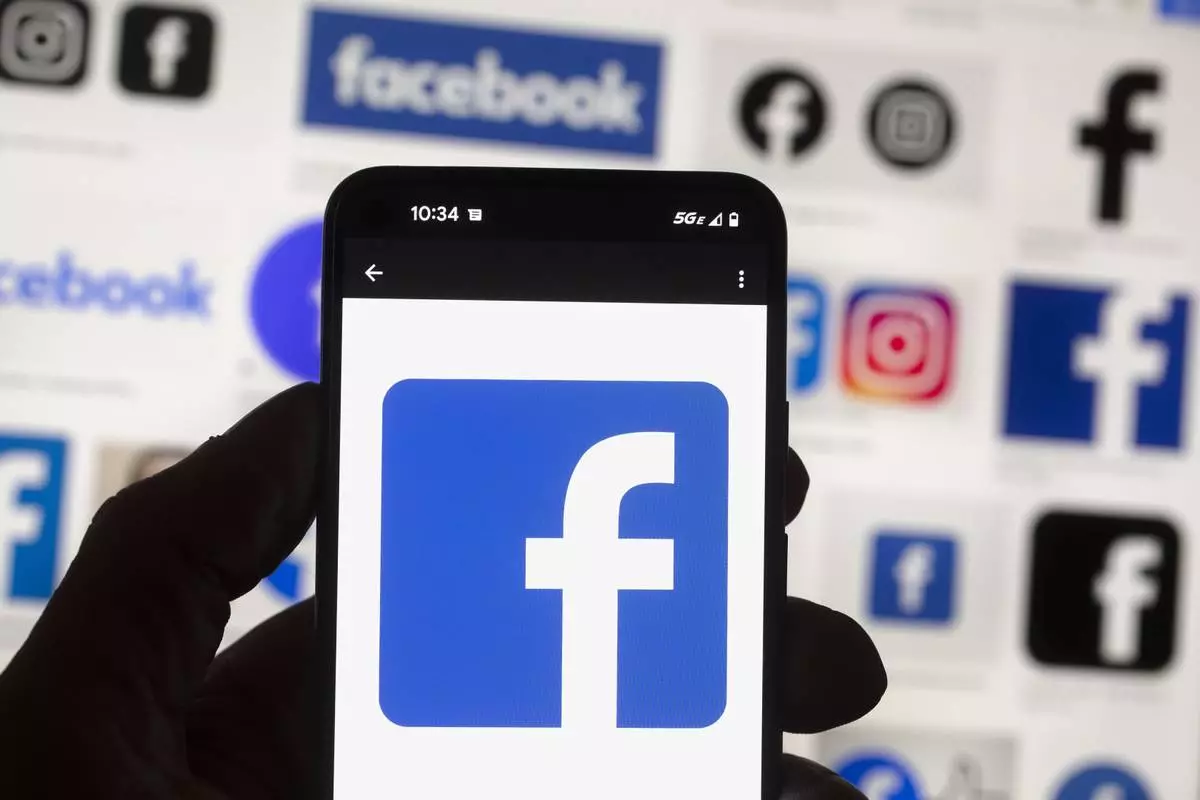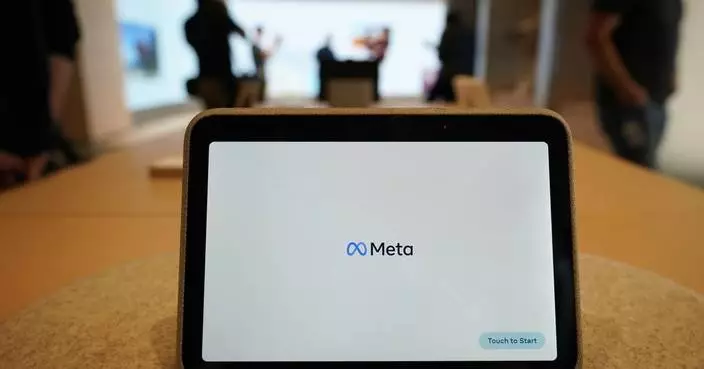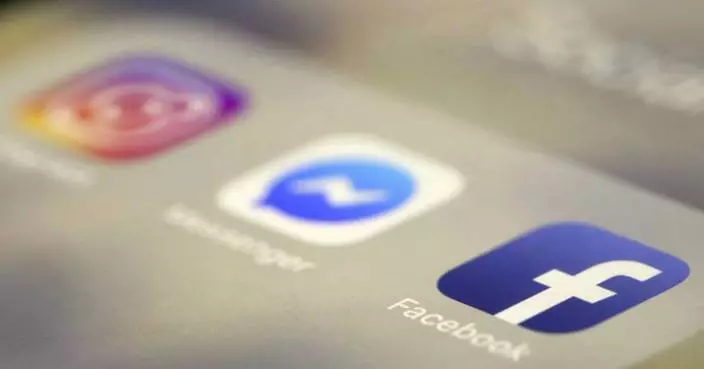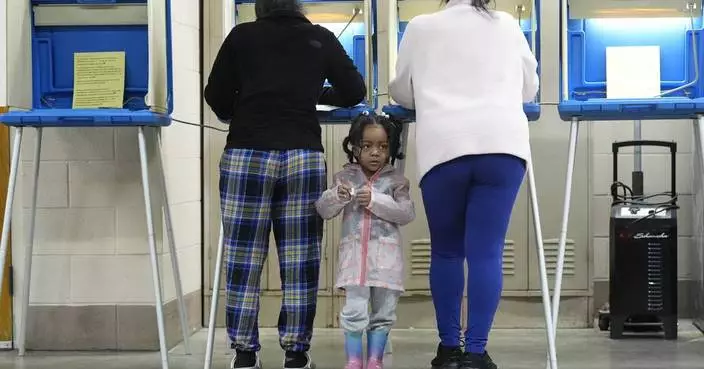In the wake of a privacy scandal involving a Trump-connected data-mining firm, Facebook CEO Mark Zuckerberg embarked on a rare media mini-blitz in an attempt to take some of the public and political pressure off the social network.
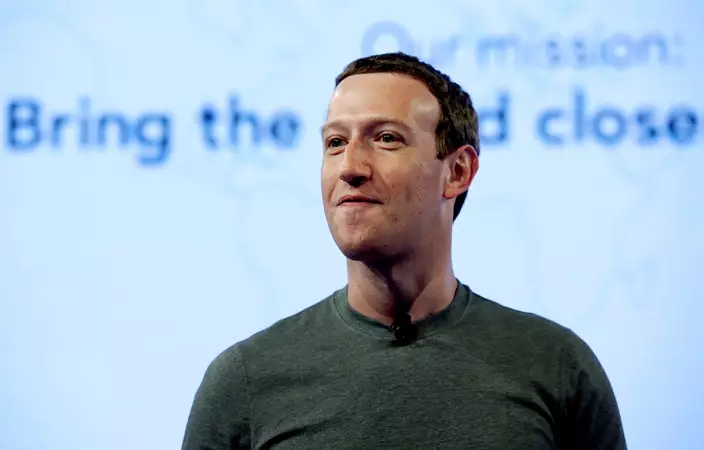
FILE - In this June 21, 2017, file photo, Facebook CEO Mark Zuckerberg speaks during preparation for the Facebook Communities Summit, in Chicago. (AP Photo/Nam Y. Huh, File)
But it's far from clear whether he's won over U.S. and European authorities, much less the broader public whose status updates provide Facebook with an endless stream of data it uses to sell targeted ads.
On Wednesday, the generally reclusive Zuckerberg sat for an interview on CNN and conducted several more with other outlets, addressing reports that Cambridge Analytica purloined the data of more than 50 million Facebook users in order to sway elections. The Trump campaign paid the firm $6 million during the 2016 election, although it has since distanced itself from Cambridge.
Zuckerberg apologized for a "major breach of trust," admitted mistakes and outlined steps to protect users following Cambridge's data grab.
"I am really sorry that happened," Zuckerberg said on CNN. Facebook has a "responsibility" to protect its users' data, he added, noting that if it fails, "we don't deserve to have the opportunity to serve people."

Chief Executive of Cambridge Analytica (CA) Alexander Nix, leaves the offices in central London, Tuesday March 20, 2018. (Dominic Lipinski/PA via AP)
His mea culpa on cable television came a few hours after he acknowledged his company's mistakes in a Facebook post , but without saying he was sorry.
Zuckerberg and Facebook's No. 2 executive, Sheryl Sandberg, had been quiet since news broke Friday that Cambridge may have used data improperly obtained from roughly 50 million Facebook users to try to sway elections. Cambridge's clients included Donald Trump's general-election campaign.
Facebook shares have dropped some 8 percent, lopping about $46 billion off the company's market value, since the revelations were first published.
While several experts said Zuckerberg took an important step with the CNN interview, few were convinced that he put the Cambridge issue behind hm. Zuckerberg's apology, for instance, seemed rushed and pro forma to Helio Fred Garcia, a crisis-management professor at NYU and Columbia University.
"He didn't acknowledge the harm or potential harm to the affected users," Garcia said. "I doubt most people realized he was apologizing."
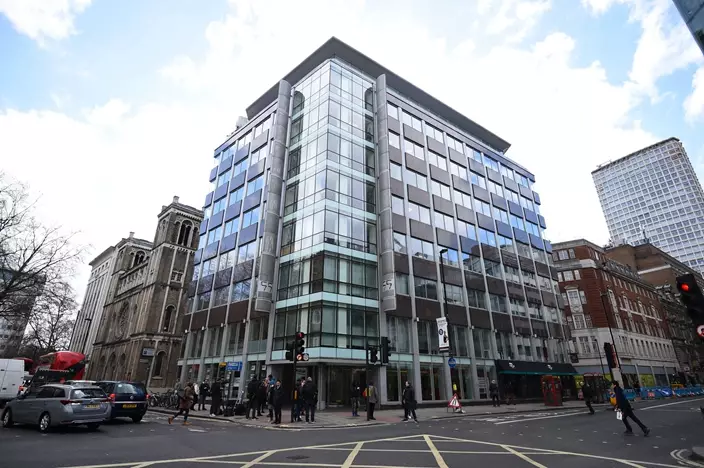
The offices of Cambridge Analytica (CA) in central London, after it was announced that Britain's information commissioner Elizabeth Denham is pursuing a warrant to search Cambridge Analytica's computer servers, Tuesday March 20, 2018. (Kirsty O'Connor/PA via AP)
Instead, the Facebook chief pointed to steps the company has already taken, such as a 2014 move to restrict the access outside apps had to user data. (That move came too late to stop Cambridge.) And he laid out a series of technical changes that will further limit the data such apps can collect, pledged to notify users when outsiders misuse their information and said Facebook will "audit" apps that exhibit troubling behavior.
That audit will be a giant undertaking, said David Carroll, a media researcher at the Parsons School of Design in New York — one that he said will likely turn up a vast number of apps that did "troubling, distressing things."
But on other fronts, Zuckerberg carefully hedged otherwise striking remarks.
In the CNN interview, for instance, he said he would be "happy" to testify before Congress — but only if it was "the right thing to do." Zuckerberg went on to note that many other Facebook officials might be more appropriate witnesses depending on what Congress wanted to know.
At another point, the Facebook chief seemed to favor regulation for Facebook and other internet giants. At least, that is, the "right" kind of rules, such as ones requiring online political ads to disclose who paid for them. In almost the next breath, however, Zuckerberg steered clear of endorsing a bill that would write such rules into federal law, and instead talked up Facebook's own voluntary efforts on that front.
"They'll fight tooth and nail to fight being regulated," said Timothy Carone, a Notre Dame business professor. "In six months we'll be having the same conversations, and it's just going to get worse going into the election."
Even Facebook's plan to let users know about data leaks may put the onus on users to educate themselves. Zuckerberg said Facebook will "build a tool" that lets users see if their information had been impacted by the Cambridge leak, suggesting that the company won't be notifying people automatically. Facebook took this kind of do-it-yourself approach in the case of Russian election meddling, in contrast to Twitter, which notified users who had been exposed to Russian propaganda on its network.
In what has become one of the worst backlashes Facebook has ever seen, politicians in the U.S. and Britain have called for Zuckerberg to explain its data practices in detail. State attorneys general in Massachusetts, New York and New Jersey have opened investigations into the Cambridge mess. And some have rallied to a movement that urges people to delete their Facebook accounts entirely.
Sandy Parakilas, who worked in data protection for Facebook in 2011 and 2012, told a U.K. parliamentary committee Wednesday that the company was vigilant about its network security but lax when it came to protecting users' data.
He said personal data including email addresses and in some cases private messages was allowed to leave Facebook servers with no real controls on how the data was used after that.
Paul Argenti, a business professor at Dartmouth, said that while Zuckerberg's comments hit the right notes, they still probably aren't enough. "The question is, can you really trust Facebook," he said. "I don't think that question has been answered."
Cambridge Analytica headquarters in central London was briefly evacuated Thursday as a precaution after a suspicious package was received. Nothing dangerous was found and normal business resumed, police said.



